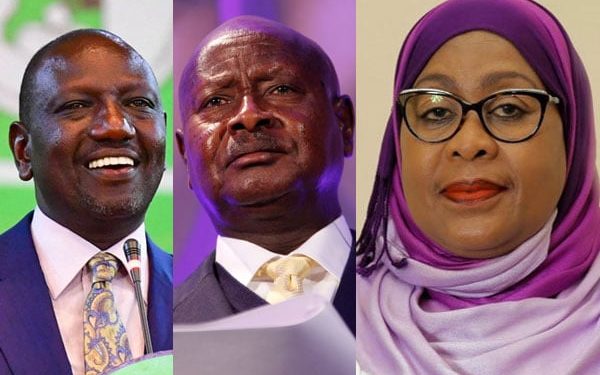President William Ruto is lagging behind regional counterparts Samia Suluhu of Tanzania and Yoweri Museveni of Uganda in addressing crime according to Afrobarameter report that was released on Monday.
The report ranks the Kenyan government at 10th place in terms of its performance in implementing policies to reduce crime, garnering a below-average approval rating of 46 percent.
The results painted a bleak picture of the Kenyan police force’s performance on the continental scale. Notably, 52 percent of Kenyan respondents admitted to paying bribes to the police for assistance, placing Kenya at the ninth position in the ranking.
In contrast to Tanzania which secured the second position with an impressive 74 percent approval rating, while Uganda claimed the eighth spot with a 57 percent rating.
Benin topped the ranking with a 77 percent approval rating, followed by Tanzania, Sierra Leone (63 percent), Togo (62 percent), Zambia (60 percent), Mali (60 percent), Niger (59 percent), Uganda, and Mauritania (57 percent).
The respondents from 39 countries were queried about their perception of their respective governments’ handling of crime reduction.
Furthermore, the report revealed that 18 percent of Kenyan respondents believe that Kenyan police do not conduct themselves professionally, while 38 percent insisted that police officers engage in criminal activities. On a broader scale, the report concluded that one-third of Africans believe their police generally operate professionally and respect citizens’ rights.
Regarding interactions with the police, the findings indicated that 54 percent of respondents who sought police assistance in the previous year found it easy to obtain help, but 36 percent reported having to pay a bribe.
Among those encountering the police in other situations, 37 percent stated they had to pay a bribe to avoid problems, ranging from 1 percent in Cabo Verde to 70 percent in Liberia.
Afrobarometer is a pan-African, non-partisan survey research network, offering dependable data on African perspectives and assessments of democracy, governance, and quality of life.














